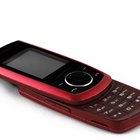Whether you like to change cellphones every few months or hang onto your favorite model for years, you eventually have to deal with the question of what to do with the old phone you’re no longer using. You might want to consider donating the phone so that a domestic-violence survivor can have one to use in case of an emergency. You have several options regarding where to go if you choose to send your phone to one of these programs. If you think your phone is unusable, you can still send it in, and the program will recycle the phone instead.
Recycling vs. Donating for Use
When you donate a cellphone to an organization for domestic-violence survivors, you’re actually donating it for recycling. The organizations sift through the phones they receive and pull out the usable ones and ones that they can fix up. Those phones are made ready and given to people dealing with domestic abuse. All the others are sent to a recycling company, often for some cash in return. That cash is then disbursed to domestic-violence programs and shelters.
Where You Can Go
Many organizations, from domestic-abuse organizations like the National Coalition Against Domestic Violence and the Shelter Alliance to retail companies like Verizon, accept old cellphones with the specific goal of either recycling unusable phones or refurbishing usable equipment. Police departments often have programs as well. Companies and organizations usually accept phones from any carrier and in any style, although it’s better to call ahead to double-check their specific policy if you’re bringing in the phone. You have the option to mail in phones or drop them off, depending on the organization. If you don’t have a particular organization in mind, check if your own cell phone company or police department will accept dropped-off donations.
What They’re Looking for
Technically, companies and organizations that accept phones are looking for anything because unusable phones can still be recycled. That at least gives an organization some money that it can donate to other domestic-violence shelters. If you do have an old phone that’s usable, though, that’s better -- but remember to include the charger. Pre-paid cellphones are also welcomed by some organizations such as Becky’s House, a domestic-violence refuge run by the YWCA of San Diego County. These phones give people access without their having to worry about contracts and high monthly payments.
How to Prepare Your Phone
Treat phone recycling and donation as if you were selling the phone to a stranger. Delete all of your information, from contacts to text messages to games. Remove pictures, too. Your phone might have a master-delete option that will erase all information; if you’re unable to find this feature on your phone, contact your service provider, who might also be able to erase the phone’s information if you bring it into one of their stores. Gather all of the accessories and paperwork associated with the phone in addition to the charger, including spare batteries and hands-free car kits. If your phone turns out to be one that a domestic violence survivor can use, having additional supplies and the original instructions will make using the phone a lot easier.
Related Articles

How to Send Letters & Care Packages to ...

How to Buy Discontinued Fossil Watches

How to Find Someone With Their Old ...

How to Find Wholesale Authentic Handbags

How to Make a Phone Directory for My ...

Removing Magnetic Security Tags

How to Fix a Fossil Watch

How to Start Your Own Business Sewing ...
How to Void a Check

How to Repair Revo Sunglasses

How to Find Someone's Relatives

How to Dispose of Army Uniforms

How to Send a Free Greeting Card to a ...

How to Find Someone's New Address Once ...

How to Donate Trophies to Be Refurbished

How to Set Up a High School Reunion ...

How to Find Bank Accounts of Deceased ...

Repair of Dior Sunglasses

How to Find Someone's Address for Free

How to Find the Number of a Voice Mail ...
References
Writer Bio
Suzanne S. Wiley is an editor and writer in Southern California. She has been editing since 1989 and began writing in 2009. Wiley received her master's degree from the University of Texas and her work appears on various websites.